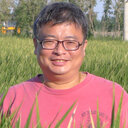Bornyl cinnamate inhibits inflammation-associated gene expression in macrophage cells through suppression of nuclear factor-κB signaling pathway.
Ključne besede
Povzetek
Formosan sweetgum (Liquidamber formosana) is an endemic tree species. Various parts of this tree are used as a traditional Chinese medicine for treating pain, inflammation, and rheumatic disorders. In this study, we investigated the anti-inflammatory potential of bornyl cinnamate, a cinnamic acid derivative from the essential oil of L. formosana. Pretreatment with bornyl cinnamate significantly inhibited lipopolysaccharide-induced proinflammatory molecules, including nitric oxide, prostaglandin-E2, tumor necrosis factor α, and interleukin-1β production, in murine macrophage RAW 264.7 cells. RT-PCR and immunoblotting analysis revealed that the inhibition of the proinflammatory molecules occurred through the downregulation of their corresponding mediator genes. Immunofluorescence and luciferase reporter assays revealed that the inhibition of proinflammatory genes by bornyl cinnamate was caused by the suppression of nuclear translocation and transcriptional activation of the redox-sensitive transcription factor nuclear factor κB. In addition, bornyl cinnamate increased the protein stability of the inhibitor of nuclear factor κB, an endogenous repressor of nuclear factor κB, through inhibition of its phosphorylation and proteasomal degradation. Furthermore, bornyl cinnamate significantly blocked the lipopolysaccharide-induced activation of I-κB kinase α, an upstream kinase of the inhibitor of nuclear factor κB α. Taken together, these results suggest that bornyl cinnamate could inhibit proinflammatory molecules through the suppression of the redox-sensitive nuclear factor κB signaling pathway.


